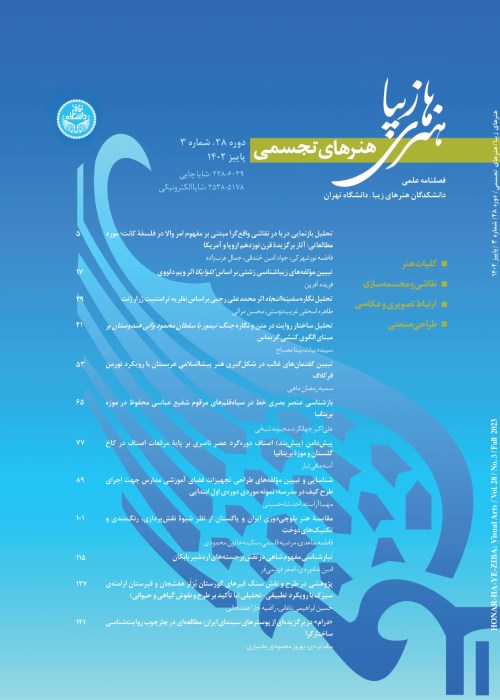Contemporary aesthetic after the Brillo Soap Pads Box created by Andy Warhol based on the “Applied Ontology” Theory
Contemporary aesthetic after the Brillo Soap Pads Box created by Andy Warhol based on the “Applied Ontology” Theory Abstract The present paper was written based on the theory of Roger Pouivet, contemporary French philosopher, that is “Applied Ontology”. The foundation of theory implied that when confronting a work of art, it must be kept in mind as it is, and almost all the aesthetic theories in the philosophy of art that define an object as an artwork must be ignored as well. The theory also rests on the indefinable ontology of art, the identity of the work itself, the atmosphere of the art world, the realization of the work as a personal or collective symbol besides the way a contemporary audience receipt it. Therefore, the audience's major role in understanding the concept of artwork is undeniable and art may not exist unless constituted by the mind (audience) which receives it, only when the artwork acquires its particular characters in the process of reception. We, additionally, studied the aesthetical effect of Brillo Soap Pads Box created by Andy Warhol. This paper is of importance because it studied the work, Brillo Soap Box, which was a real challenge at the time of exhibition due to it failed to achieve the consensus in the art world to be accepted as an artwork. Almost all philosophical studies have had ontological approach to the aesthetics of art in order to distinguish artistic identity from non-artistic one in hand-made works. This has seriously involved philosophers and different theories and attitudes have been proposed in this respect. However, there is no ultimate answer to the question of “What can be taken into account as artwork?” In this respect two major research questions shaped that are: 1. In the contemporary era, what aesthetic criteria introduce a hand-made work as an artwork? 2. According to Pouivet's theory of “Applied Ontology”, based on what approaches a contemporary artwork regarded as the artist's personal symbolism and how the work is received aesthetically by the audience? The paper also scrutinized the ways an audience understands the meaning of the artwork. The findings of the study indicate that reception of contemporary aesthetics as a recognition of personal and collective symbol offers a new and unique experience. The hypothesis of the paper emphasizes the point that an artwork, in any style, presents symbolism in form and content. Basically in the contemporary period, artist's personal symbols mixed with pre-recognized collective symbols of a culture have fundamental role in creation an artwork. In conclusion, in contemporary aesthetics, a work is known as an art when there are discussions and conversations about it without the need for achieving the experts’ consensus. The Methodology of Research is qualitative analysis that attempts to investigate the answer of research questions and to prove the proposed hypothesis. The information of the research collected from reputed websites and library sources. Since the “Applied Ontology” of the contemporary French philosopher Roger Pouivet is basis of the paper, references are often from French articles, books and sources.
- حق عضویت دریافتی صرف حمایت از نشریات عضو و نگهداری، تکمیل و توسعه مگیران میشود.
- پرداخت حق اشتراک و دانلود مقالات اجازه بازنشر آن در سایر رسانههای چاپی و دیجیتال را به کاربر نمیدهد.


